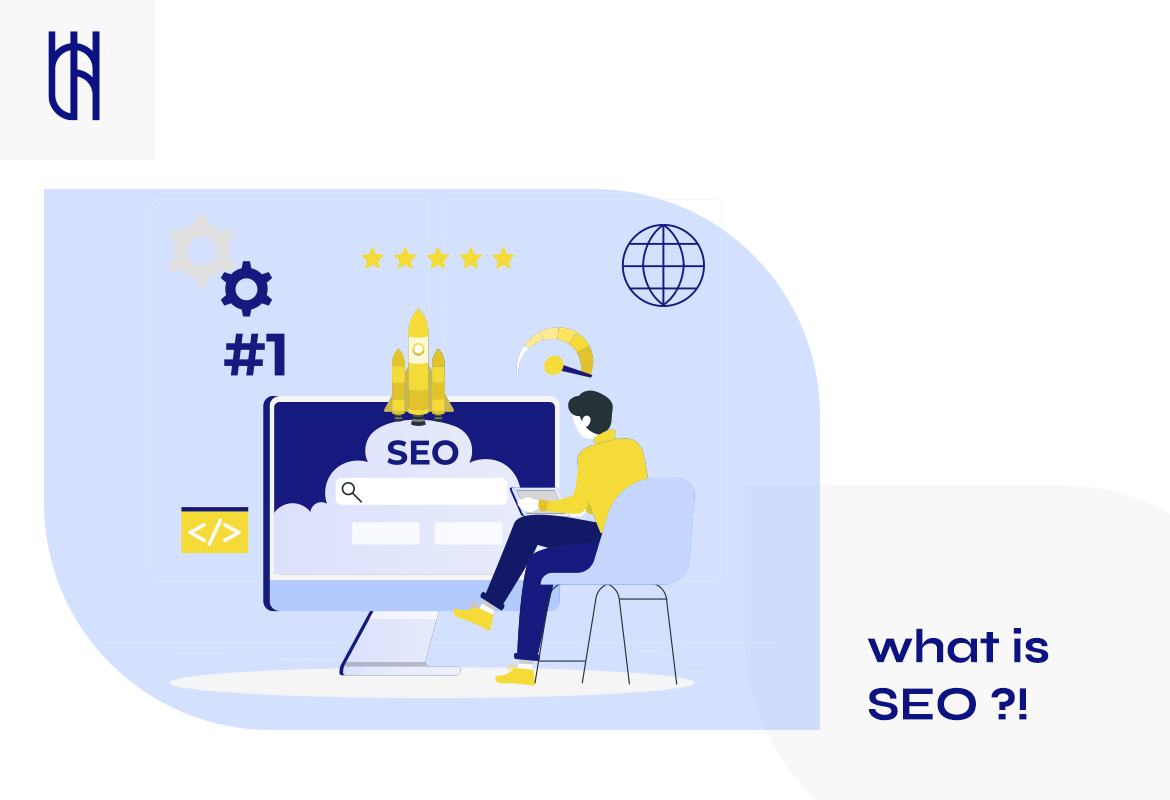What is the seo in marketing and How does it work ?
Search Engine Optimization, is a crucial component of digital marketing aimed at improving a website’s visibility and ranking in search engine results pages (SERPs). It involves optimizing various aspects of a website to make it more appealing to search engines like Google, Bing, and Yahoo, thereby increasing organic traffic.
SEO encompasses a wide range of strategies and techniques, including:
- Keyword Research: Identifying and targeting relevant keywords and phrases that potential customers are searching for.
- On-Page Optimization: Optimizing individual web pages by incorporating target keywords into meta tags, headings, content, and URLs, and ensuring proper HTML coding and page structure.
- Off-Page Optimization: Building high-quality backlinks from reputable websites to improve domain authority and credibility.
- Technical SEO: Optimizing website performance, loading speed, mobile-friendliness, and crawlability to enhance user experience and search engine rankings.
- Content Marketing: Creating valuable, relevant, and engaging content that attracts and engages the target audience, while also satisfying search engine algorithms.
- Local SEO: Optimizing a website to appear in local search results, particularly important for brick-and-mortar businesses targeting local customers.
- Analytics and Reporting: Monitoring website performance, traffic trends, keyword rankings, and other metrics to measure the effectiveness of SEO efforts and make data-driven decisions.
SEO in marketing is a dynamic and ever-evolving discipline that requires ongoing attention, adaptation, and optimization to maintain and improve website visibility, attract targeted traffic, and achieve business goals in the competitive digital landscape.
What are the SEO Challenges can solve ?
Search Engine Optimization (SEO) can solve several challenges and problems that businesses commonly face in the digital landscape. Here are some key issues that SEO can help address:
- Low Website Visibility: One of the primary challenges businesses encounter is low visibility in search engine results pages (SERPs). SEO helps improve website visibility by optimizing various elements such as content, keywords, meta tags, and backlinks, making it more likely to appear higher in search engine rankings and attract organic traffic.
- Decreased Organic Traffic: If a website is not ranking well in search engine results, it may experience decreased organic traffic. SEO strategies aim to increase organic traffic by targeting relevant keywords, optimizing content for search engines, and improving overall website performance.
- Lack of Targeted Leads: Without effective SEO, businesses may struggle to attract targeted leads and potential customers who are actively searching for their products or services online. SEO helps businesses reach their target audience by optimizing for relevant keywords and ensuring that their website appears prominently in search results for relevant queries.
- competitive Disadvantage: In today’s competitive digital landscape, businesses that neglect SEO risk falling behind their competitors who invest in optimizing their online presence. By implementing effective SEO strategies, businesses can level the playing field and compete more effectively in search engine rankings.
- Poor User Experience: SEO is not just about improving search engine rankings; it also involves enhancing user experience (UX). Websites that are optimized for SEO tend to offer better navigation, faster loading times, and more relevant content, leading to a more positive user experience and increased engagement.
- Negative Online Reputation: Negative reviews, comments, or content appearing prominently in search results can damage a business’s online reputation. SEO can help manage online reputation by promoting positive content, suppressing negative results, and ensuring that the brand’s digital presence accurately reflects its values and offerings.
- Limited Local Visibility: For businesses targeting local customers, lack of visibility in local search results can be a significant challenge. Local SEO strategies help businesses improve their visibility in local searches, attract customers in their geographic area, and drive foot traffic to physical locations.
SEO is a powerful tool for addressing various challenges businesses face in the digital world, from low visibility and decreased traffic to competitive disadvantage and negative online reputation. By investing in SEO, businesses can improve their online presence, attract targeted leads, and achieve their business objectives in today’s competitive marketplace.
What is the result of using SEO?
The results of using SEO (Search Engine Optimization) can have a significant impact on a business’s online presence, visibility, and overall success. Here are some key results of implementing effective SEO strategies:
- Increased Website Traffic: SEO helps improve a website’s visibility in search engine results pages (SERPs), leading to higher organic traffic. By targeting relevant keywords and optimizing website content, businesses can attract more visitors to their site who are actively searching for their products or services.
- Higher Search Engine Rankings: With effective SEO, websites can achieve higher rankings in search engine results for targeted keywords and phrases. Higher rankings mean increased visibility and exposure to potential customers, leading to more clicks and traffic to the website.
- Enhanced Brand Visibility and Recognition: SEO efforts not only improve website rankings but also increase brand visibility and recognition. Websites that consistently appear at the top of search results are perceived as more authoritative and trustworthy by users, which can enhance brand credibility and awareness.
- Better User Experience: SEO involves optimizing website structure, content, and performance to provide a better user experience. Websites that load quickly, have relevant and high-quality content, and are easy to navigate are more likely to engage users and keep them on the site longer, leading to lower bounce rates and increased conversions.
- Higher Conversion Rates: By attracting targeted traffic and providing valuable content, SEO can lead to higher conversion rates. Visitors who find a website through organic search are often more qualified leads, as they are actively seeking information or solutions related to the business’s offerings.
- Long-Term Sustainability: Unlike paid advertising, the results of SEO are long-term and sustainable. Once a website achieves high rankings in search results, it can continue to attract organic traffic and generate leads without ongoing advertising costs, providing a higher return on investment (ROI) over time.
- Competitive Advantage: Businesses that invest in SEO gain a competitive advantage over competitors who neglect their online presence. By outranking competitors in search results, businesses can attract more customers, capture market share, and establish themselves as industry leaders.
Overall, the results of using SEO can lead to increased website traffic, higher search engine rankings, enhanced brand visibility, better user experience, higher conversion rates, long-term sustainability, and a competitive advantage in the digital marketplace. By investing in effective SEO strategies, businesses can achieve their marketing objectives and drive growth and success online.
Conclusion
SEO is an essential aspect of digital marketing, essential to boost online visibility, attract targeted traffic, and increase conversions. It helps increase website traffic, top search engine rankings, improve brand visibility, and improve user experience. While SEO requires constant efforts to adapt to changing algorithms and trends, their long-term sustainability makes them a valuable investment for businesses seeking to succeed online in the competitive digital landscape. CodeStan can help you achieve these SEO goals with customized strategies and expert support, ensuring your business remains competitive and thrives in the digital world. You can learn more about what is SEO, how it works and what are its benefits? Here
FAQ
What is SEO in marketing?
SEO (Search Engine Optimization) in marketing is the practice of improving a website’s visibility and ranking in search engine results pages (SERPs). It involves optimizing various aspects of a website to attract more organic (non-paid) traffic from search engines.
What are some key SEO strategies?
- Keyword Research: Identifying relevant keywords to target.
- On-Page Optimization: Optimizing meta tags, headings, and content.
- Off-Page Optimization: Building high-quality backlinks.
- Technical SEO: Ensuring the website is fast, mobile-friendly, and well-structured.
- Content Marketing: Creating valuable and engaging content.
- Local SEO: Optimizing for local search results, especially for businesses targeting specific geographic locations.
Why is SEO important for businesses?
SEO is crucial for businesses because it helps improve online visibility, attracts targeted traffic, and enhances user experience. Higher rankings in search results can lead to more organic traffic, increased brand credibility, and higher conversion rates.






